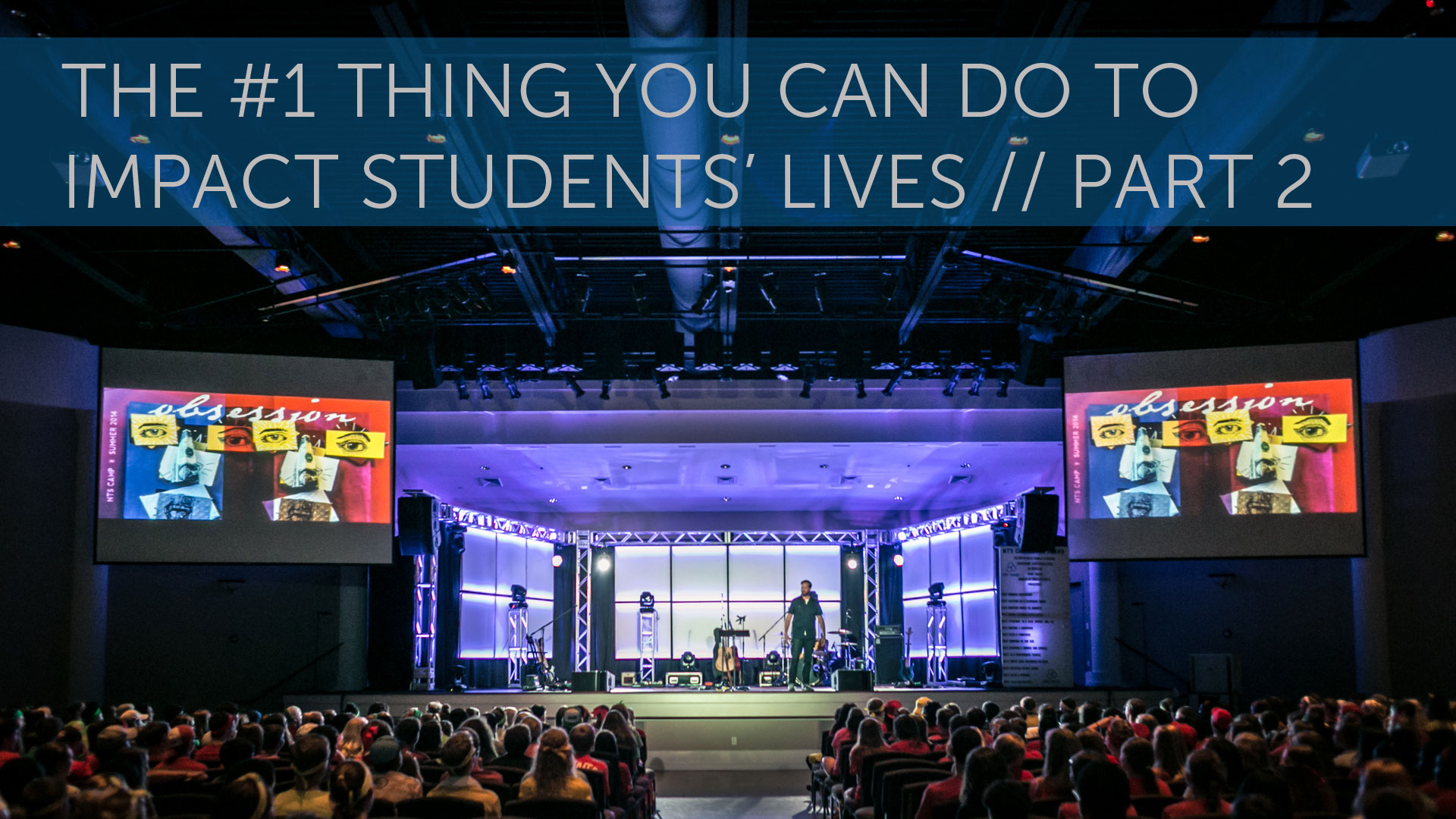In 25 years, I can see nothing more paramount in our Kingdom work with young people whether we are youth workers, parents or pastors.
In my previous post, I wrote that the #1 way to impact the life of a student is to help them learn to regularly engage in the Bible. Many, if not most or all, would agree with this statement. And yet, look around you. Who is actually accomplishing this?
THE POWER OF 4
Why is Bible engagement important? As I mentioned in part 1, research shows that Bible engagement changes both belief and behavior. The Center for Bible Engagement has great information. And their findings reveal that the tipping point for life change is the number “4”. When someone is regularly engaged in the Scriptures 4 or more times a week then behavior is affected dramatically. So then the question becomes…
How often are your students reading the Bible?
Here is what our *research from Never The Same has learned. When asked, “How often do you read the Bible?” students responded:
· Never 38%
· 1-3 times a week 47%
· 4+ times a week 14%
Almost 4 out of 10 never actually read the Bible. But according to this statistic combined with the Center for Bible Engagement research, only 14% are over the tipping point of 4 or more times of Bible engagement. Only slightly more than 1 out of 10 students that you know (whether in your church or home) are engaged in Scripture regularly enough to see significant life change.
OBSTACLES THAT KEEP STUDENTS FROM READING THE BIBLE
When asked, “What keeps you from reading the Bible?” the top 3 responses from students are:
· “I don’t know how it applies to my life” 6%
· “I don’t know where to start” 29%
· “I don’t have time” 52%
HALF are saying that they don’t have the time. It is probably not surprising that busyness is a factor in students’ lives today when it comes to Bible engagement.
John**, a youth pastor I know, asked the students in his ministry one day the question, “In the Bible, who was Abraham’s promised son?” Only 1 out of 100 was able to answer. (Do you know the answer?) And he asked himself, “What are we accomplishing in our ministry?” Of course, being better at Bible trivia isn’t the goal, but after this moment John began to build a plan to get their students in the Word. And it was working. It quickly became a passion that passed from him to his ministry and students.
One Sunday, John was confronted by one of his parents along with her daughter, to ask John to ease off the push for Bible reading and engagement in their ministry. She explained to him that her daughter was feeling guilty because she simply didn’t have the time to read the Bible because of sports, a job, and homework. Her daily routine was exhausting and the Bible didn’t fit into her lifestyle.
John asked two questions. One, he asked the student what her relationship with her current boyfriend would be like if she never communicated with him. Her response was that it wouldn’t be much and they probably wouldn’t survive if they didn’t communicate. But she wasn’t seeing the point behind the question.
He then asked her, “Suppose I could get you 2 front row seats and backstage passes to your favorite artist (who shall go unnamed in this story!) as long as you read the Bible cover to cover before “earning” these tickets. How long would you need to read through the ENTIRE Bible?”
Her response was, “About two weeks.”
Suddenly, her mother realized the REAL issue. The issue IS NOT time, IT IS priority. It wasn’t that this student didn’t have the time after all, it was that she didn’t think it was truly important enough to give her time towards it.
If you ever hear yourself or someone else saying, about anything, “I don’t have time” – never believe it. What is really being said is, “It’s not a priority.”
We must not believe that because half of our students are saying they don’t have time therefore we lower the bar and expect them to NEVER engage the Scriptures. Lack of time simply isn’t a valid reason. And as people wanting to impact young people, we must not settle for this answer when we hear it.
In a world of “1 Minute Bibles” we must learn to not only expect more from students and ourselves but also help cultivate the desire that already exists within all of us to know our Creator. And the Bible contains a wealth of information about our God. It is our role to unlock this passion within students and then unleash it.
Join me for part 3 where I will share what happens when Bible engagement comes alive in students and what YOU can do to engage your students in the Scriptures.
Jeff Eckart, CEO
Never The Same
*research sample was 2,752 middle school & high school students in the summer of 2014 of which 87% are regular attendees (1 or more times/week) of church/youth group from across the US.
**Name change to protect the true identity of youth pastor.
© 2014, Never The Same


